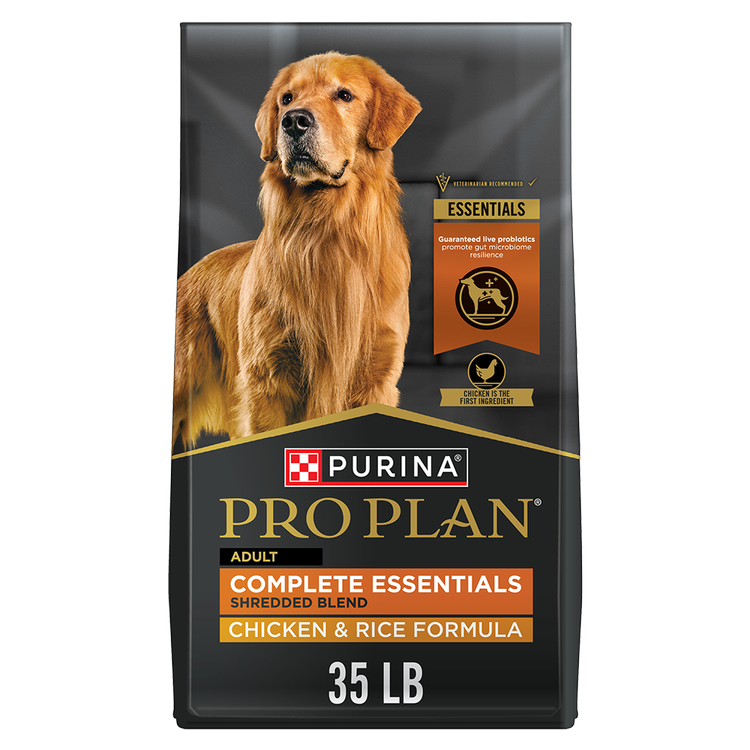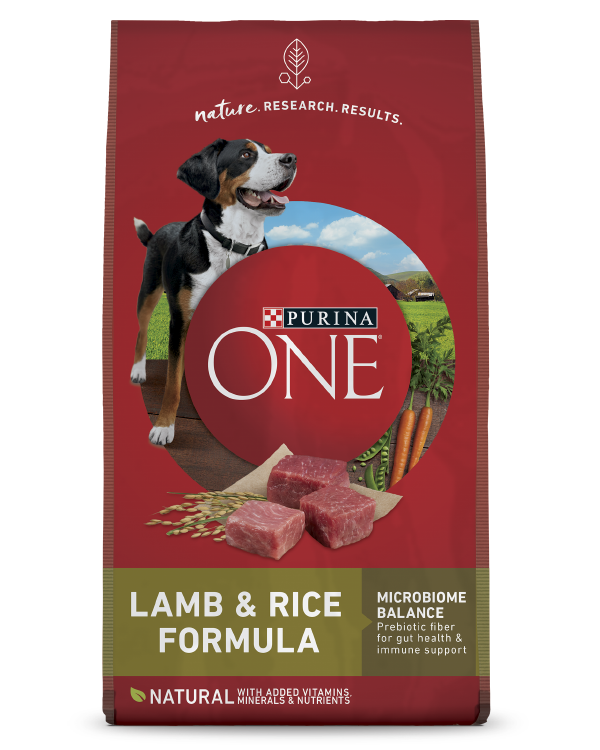Dog Nutrition Basics: Essential Health Nutrients


To maintain canine nutritional health, dogs need the right amounts and proportions of nutrients from six different groups: vitamins and minerals, water, protein, fat and carbohydrates. Commercial dog foods that claim to be 100 percent complete and balanced contain all these required nutrients, except for water.
Essential Nutrients in Dog Food
Water
Water is essential in helping regulate body temperature, lubrication of body tissues and as a fluid medium for the blood and lymphatic systems. Because water is involved in practically every reaction within an animal’s body, any significant deviation could cause adverse effects. Dogs’ bodies are designed to maintain constant water balance.
Dogs get most of their water by drinking it, but they also get some from fluid ingested with food and water generated from metabolic processes in the body. Water is primarily lost through urine, feces and respiration.
Minimum water requirements for a dog depend on the amount of food they eat each day and if it’s a wet or dry food. In general, dogs need one milliliter of water for each kilocalorie of energy. Furthermore, water intake is controlled by thirst, hunger, metabolic activity (work, gestation, lactation, growth) and the environment (humidity and temperature). Fresh water should always be available for your dog.
Dogs who eat wet dog food may drink less water throughout the day. Wet food contains 70 to 75 percent water, whereas dry kibble contains 8 to 12 percent.
Protein
Protein performs numerous functions in the body, such as muscle growth, tissue repair, enzymes, transporting oxygen in the blood, immune functions and as a source of energy. More than 20 amino acids are involved in the protein synthesis in the body, and there are two basic kinds: essential and nonessential.
The body can’t produce essential amino acids on its own or in sufficient enough quantities to grow and stay healthy. They must be supplemented through a proper diet. The body is also unable to store essential amino acids for any significant period. They are constantly metabolized and need to be replenished regularly in the right proportions through diet.
The 10 essential amino acids for dogs are:
- Arginine
- Histidine
- Isoleucine
- Leucine
- Lysine
- Methionine
- Phenylalanine
- Threonine
- Tryptophan
- Valine
Protein Sources
Protein is derived from both animal and plant sources. Most protein ingredients don’t contain all the essential amino acids in the right proportion and are inefficient as the sole source of protein. Therefore, most dog foods contain multiple sources of protein to achieve the right balance.
For example, soybean meal and corn are complementary proteins because the amino acids that are deficient in one are present in the other.
Most protein sources—meat included—must be combined with another protein source to provide all the essential amino acids for dogs but can be sufficient if fed in combination with another complementary source of amino acids for dogs.
Protein Digestibility
Digestibility means a dog’s body can break down the proteins and use them for energy and other functions. High levels of protein do not equal digestibility, however. Although two different dog foods can have the same protein level listed on the package, a controlled feeding study may show varying digestibility. Excessive heat processing and improper cooking methods can damage protein, so quality control during manufacturing is essential.
Excesses & Deficiencies
Dogs can metabolize excess protein to use for energy. Too much excess could lead to fat production in the body, however.
Dogs who don’t get enough protein in their diets may develop a deficiency. Signs of a protein deficiency include decreased appetite, poor growth, weight loss, rough and dull hair or coat, reduced immune function, lower reproductive performance and decreased milk production.
Dogs can also experience subclinical protein deficiencies. This means they may appear healthy but can be more susceptible to infections and other environmental stresses. The good news is such deficiencies are rare for dogs fed a complete and balanced diet.
Carbohydrate Sources
The primary function of carbohydrates is to provide energy. Carbohydrate sources include sugars, starches and insoluble fiber. Simple sugars are the smallest carbohydrate molecules and are easily digested and absorbed. By contrast, complex carbohydrates, or starches, are combinations of simple sugars forming long chains that require more digestion before they can be absorbed into the bloodstream. Insoluble fibers are carbohydrates that are not digestible by dogs.
In manufactured pet foods, most dietary carbohydrates are grains, such as wheat, corn and rice.
The primary site of carbohydrate digestion is in the small intestine, where these complex compounds are broken down to glucose (a simple sugar). Glucose is the source of energy used by most cells in the body.
Excess carbohydrate energy is stored in the form of glycogen in the liver and muscles and is converted to fat and stored in adipose tissues. During periods of fasting, stress or exercise, glycogen is broken down to glucose and delivered to the bloodstream, where it is distributed to all body tissues.
Common sources of digestible carbohydrates found in dog and cat foods include:
Cereal grain or flour from:
- Corn
- Oats
- Rice
- Barley
- Wheat
- Sorghum
The bran or hulls from grains and other vegetable products as a source of dietary fiber:
- Soybean hulls
- Wheat bran
- Beet pulp
- Rice bran
- Oat bran
- Pea fiber
Fat
Fat is a concentrated form of energy. Compared to protein and carbohydrate, fat contains approximately 2.25 times the amount of energy per gram. Most dietary fat is made up of triglycerides, a group of three fatty acids linked to a glycerol backbone.
Fatty acids can be classified by the length of their carbon chain, by the presence or absence of double bonds, the number of double bonds and the position of those bonds along the carbon chain. Fat with no double bond at all is called saturated fat, whereas those containing fatty acid chains with a double bond are called unsaturated fat.
Fat digestion is more complex than that of protein or carbohydrate. Still, healthy dogs and cats can digest approximately 90 to 95 percent of their fat intake.
In addition to being a source of energy, fat is needed as a source of fatty acids. The polyunsaturated essential fatty acids are important for healthy skin and coat, proper immune function and many other aspects of a dog’s health.
Minerals
Minerals are simple molecules compared to other nutrients. Nutritional issues related to minerals include the amount of each in the diet, proper balance of all minerals and the bioavailability of minerals in the dog’s food.
Minerals perform many different functions in the body such as bone and cartilage formation, enzymatic reactions, maintaining fluid balance, transportation of oxygen in the blood, normal muscle and nerve function and the production of hormones. Even though some minerals function separately from others, a dog can’t be adequately nourished without providing all the minerals needed in their proper proportions.
Supplementation of any one mineral to an otherwise balanced diet may create imbalances and possibly disrupt an animal’s nutritional health.
Minerals are usually grouped into macro and micro categories. Macro-minerals are needed in greater amounts in the diet and found in larger quantities in the body than micro-minerals.
Macro-minerals:
- Calcium (Ca)
- Phosphorus (P)
- Sodium (Na)
- Chloride (Cl)
- Potassium (K)
- Magnesium (Mg)
Micro-minerals:
- Iron (Fe)
- Zinc (Zn)
- Copper (Cu)
- Manganese (Mn)
- Selenium (Se)
- Iodine (I)
Vitamins
Vitamins are complex and required in the smallest amounts. They’re either fat-soluble (vitamins A, D, E, K) or water-soluble (B-vitamins and Vitamin C).
Vitamins work with each other and other nutrients to nourish the body. This makes providing proportionate amounts of vitamins and other nutrients critical to dog nutrition.
Adding supplements to diets that are already complete and balanced may create imbalances with detrimental effects like organ damage, vitamin toxicity and even death. Be sure to speak with your veterinarian about what supplementation is necessary, if any, for your dog.
Get more tips from our experts on our Pet Expertise page.
Related articles

Find Your Pet’s Perfect Food
Get your personalized recommendation with our Pet Food Finder tool.





